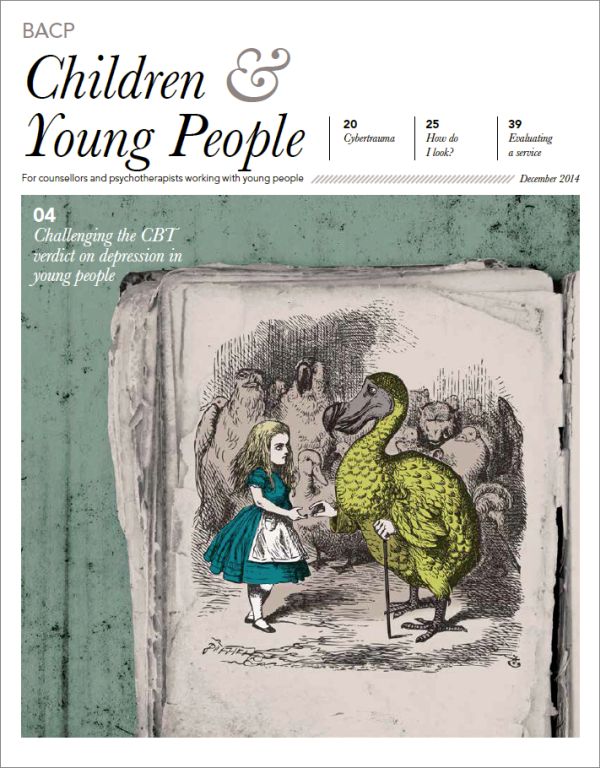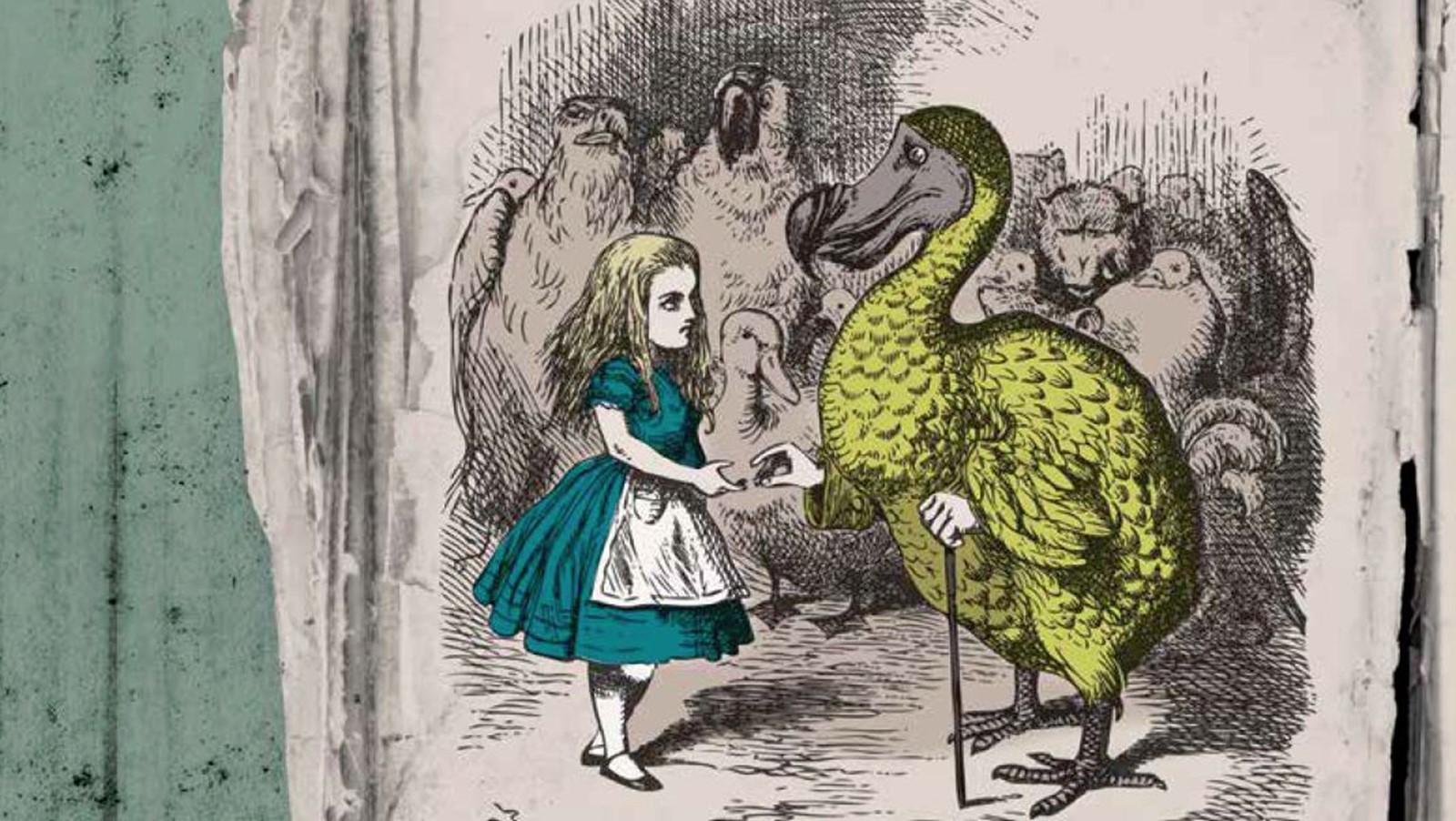In this issue
Features
What prize for curing Alice’s tears? (free article)
Pieter Nel reviews the quality of the evidence for using CBT for depression in young people
Trauma in cyberspace
Cath Knibbs explains possible online sources of presenting issues
How do I look?
How important is a counsellor’s physical appearance? Nick Luxmoore writes
Issues
Priming the pump in supervision
Ged King on group supervision of groupwork
Children adapted to adversity
Sarah Sutton writes about children who feel ‘taken in’ and tricked
New framework for supervisor training
Helen Coles introduces the BACP training curriculum
Working with families
Judith Sonnenberg describes her work
In practice
Online jottings
Emma Yates offers help for working via chat
Founding a service: the nuts and bolts
Pauline Culliney paves the way
Young people evaluating…
…their service. Sarah Perry and Simon Carpenter report on a BACP-funded pilot
Regulars
Reflecting on… Operation Yewtree
Jeanine Connor
Thinking about… being new to supervision
Anna Jacobs
Considering… talking about sex
Nick Luxmoore
From the chair

All articles from this issue are not available online. Divisional members and subscribers can download the pdf from the BACP Children and Young People archive.
Welcome from the editor
Most of us are confronted daily with the misery endured by children as they try to negotiate the world we adults have set up. A not particularly good metaphor might be the slug as it slowly circles the sharp, broken gravel around a plant to get at the nourishment it wants and needs.
Mike Shooter, President of BACP and a seasoned child and adolescent professional, writes of needing ‘the most eclectic of approaches’ to deal with the problem: ‘Children ... rarely compartmentalise their lives. What misery they face in one bit spreads throughout. To tackle it, we must offer a package of approaches, tailored to the child’s needs, not cram the child into what “ism” suits us best.’ And that package, he states, ‘should be set within a holistic, multidisciplinary context that tackles the problems from every angle – home, school, peer group and community.’1
This is the reason I try to commission a wide variety of articles for this journal – to address issues and inspire ideas from several different angles, in the hopes that some of us will find some of the thinking the very thing we needed to become aware of. I do find in life in general that the specific piece of information I need tends to turn up in my mind from somewhere else at the moment I need it. And so we range in this issue from challenging the supremacy of CBT to setting up and managing a service ourselves so that we can run it in the way we believe necessary; from sharing group supervision of groupwork with a social worker colleague to allowing young people to work out how to evaluate the service they have been offered; from realising again how (often uninhibited) cyberspace activities may lie behind seemingly unconnected presenting issues in our therapy rooms to asking ourselves whether how we dress and appear in front of our clients actually matters. Can we bring families together for face-to-face experiential groupwork in schools? Can we – at the opposite end of the spectrum – work synchronously with invisible clients online?
Our nine book reviews this time also represent a broad spectrum of areas that may well feed into our work with children and young people. I do ask reviewers not to specifically critique the book in comparison to other similar books that are available but rather to give us sufficient information and personal opinion that we can consider whether we might want to buy it when funds permit. Our reading of such book reviews (and articles, of course) is not intended to add to the misery we experience vicariously each day, but rather increase our awareness of the eclectic approaches for dealing with it that Mike Shooter recommends. As a result, I hope we may enrich our own practice by seeing more clearly how we might help young clients surmount the gravel in their world with the least further injury possible.
Eleanor Patrick
Editor
References
1 Pattison S, Robson M, Beynon A (eds). The handbook of counselling children and young people. BACP/Sage; 2014.
